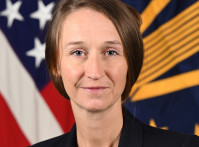-
ECSP Weekly Watch | September 3 – 6
September 6, 2024 By Neeraja Kulkarni
A window into what we’re reading at the Wilson Center’s Environmental Change and Security Program
Proliferation of Icebreakers in the Arctic (Foreign Policy)
As climate change-induced melting of ice sheets clears new pathways, the fast-melting Arctic now has a new strategic race: icebreakers. Russia covers over half of what is defined as “Arctic” territory, and it has the largest number of icebreakers in the region. Russia’s attempt to consolidate and expand has led the US and its NATO allies to redefine their own Arctic security strategy.
The focus on icebreaker capacity has led the US and NATO to employ a “monitor-and-watch” approach, focusing on surveillance. And in July 2024, the US, with Canada and Finland, created an Icebreaker Coalition Effort (ICE pact) to aid this effort. These three nations will facilitate knowledge exchange and build workforce development to strengthen each nation’s shipbuilding industries and other polar infrastructure.
True strategic competition means going beyond merely strengthening shipyard capacity in the US and other allied nations. It also requires weakening Russia’s role in supplying oil from the Arctic to Asia via the Northern Sea Route (NSR). Rebecca Pincus, Director of the Polar Institute at the Wilson Center, argues that sustaining present sanctions will lock Russia’s oil and other assets in the Arctic, and compromise its use of the NSR.
READ | More EU in the Arctic and More Arctic in the EU?
Growing Energy Security Concerns in the Red Sea (BBC)
In late August 2024, MV Sounion, a Greek-owned ship carrying close to a million barrels of crude oil, was attacked by Yemen’s militant Houthi rebels. Its 25-member crew was rescued successfully, but the Houthis attacked the vessel again by detonating explosives onboard and igniting small fires. The unsafe conditions led private energy companies to call off their attempts to recover the ship.
The US government would not let the matter rest there, however. A potential spill from the MV Sounion could have disastrous ecological impacts in the Red Sea region since it carried almost four times as much oil as the Exxon Valdez spilled in a 1989 energy disaster. Last Wednesday, the Houthis finally agreed to allow the tanker to be towed away to avert the danger. The European Commission confirmed that there was no oil spill and the vessel was anchored, despite its onboard fires still burning.
The MV Sounion incident is one of the many spillovers from the ongoing Israel-Hamas War, and it reflects how escalating tensions in the Middle East have implications for energy security. Houthi rebels are attacking Red Sea shipping to exert pressure for a cease-fire to relieve Palestinians who currently face dire humanitarian conditions in Gaza. Their threats in these waters have grown since November 2023. Recently, two other ships— the MV Blue Lagoon I and the MV Amjad, which carries twice as much oil as the Sounion) were also attacked.
READ | Gaza, Yemen, Syria, Human Rights, and Oil: The Elephants in the COP28 Room
Uganda Oil Developments Face Scrutiny (AP News)
Advocacy group Climate Rights International (CRI) has accused Kingfisher—an oil project in Uganda, developed by China National Offshore Oil Corporation (CNOOC)—of grave human rights violations in a new report. The Kingfisher project is a part of the planned pipeline that will connect Uganda’s oil activities to Tanzania. Yet the project developed by TotalEnergies and CNOOC involves construction on a vast ecologically sensitive shoreline that renders this stretch of coast inaccessible to the local communities.
CRI is urging banks and insurers to withhold further funding for Kingfisher. The group’s analysis cites the roles of several actors linked to the project both CNOOC and Uganda’s government. The communities affected by Kingfisher faced coercion and forced evictions, and received inadequate or no compensation for their land and other assets. Some residents lost their livelihoods, and others faced sexual violence.
TotalEnergies’ part in the crisis also has not gone unnoticed. It holds 56.67% of shares in Uganda’s oil fields, and is being sued in French courts for food and human rights violations. Ugandan officials dismissed CRI’s claims, and warned them to avoid interfering in the nation’s domestic matters. They argue that oil plays a role in alleviating poverty in the country.
READ | Intersecting Challenges Require Multisectoral Solutions: A Conversation with Charles Kabiswa
Sources: France24, US Department of Commerce, British Broadcasting Corporation (BBC), The White House, Arctic Council, Foreign Policy, Associated Press News (AP News)
Topics: adaptation, Arctic, Canada, climate, climate change, community-based, conflict, cooperation, democracy and governance, energy, environment, environmental justice, environmental law, environmental peacemaking, environmental security, Eye On, foreign policy, Gaza, geopolitics, human rights, Infrastructure, Israel, land, livelihoods, meta, military, natural resources, oil, Russia, security, Uganda
 A Publication of the Stimson Center.
A Publication of the Stimson Center.







